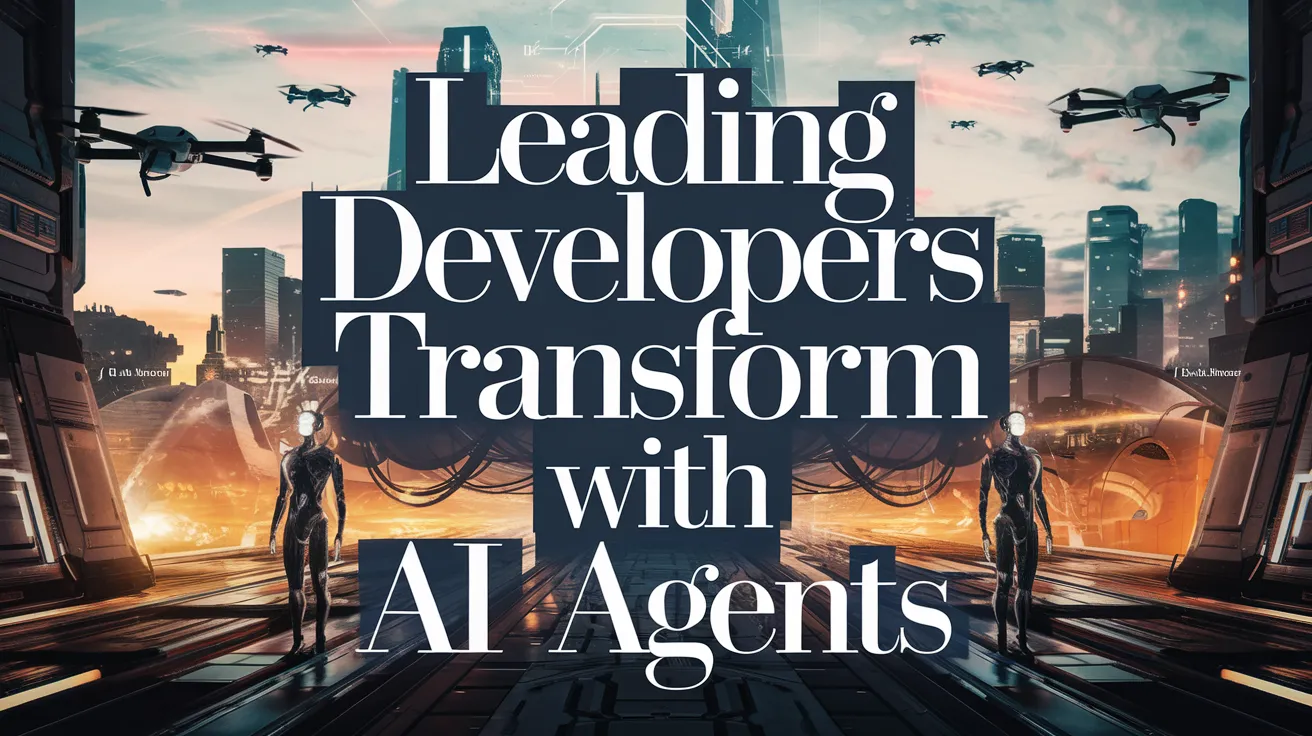Leading Developers Transform with AI Agents

In today’s fast-paced work environment, swift access to information is essential across various roles—employees seeking answers, researchers analyzing medical records, and developers assessing client requirements all benefit from AI’s transformative power. AI agents, in particular, are emerging as critical tools for automating and executing business processes, assisting individuals, teams, and organizations in achieving efficiency and productivity. According to Microsoft’s 2025 Work Trend Index, 46 percent of leaders indicate that their companies deploy agents to automate tasks, with 43 percent utilizing multi-agent systems to tackle complex workflows. Looking ahead, a staggering 82 percent anticipate adopting an agentic workforce as agents become integral digital team members within the next 12 to 18 months.
At Microsoft Build 2025, the company showcased new agents, tools, and features designed to help developers enhance their workflows and create capable, secure AI agents. This article highlights four developers who are leading this transformative initiative, harnessing AI agents to accelerate coding processes and solve significant business challenges.
Timothy Keyes: Accelerating Cancer Care Workflows
Timothy Keyes, a data scientist at Stanford Health Care and dual MD/PhD candidate in cancer biology, exemplifies the medical sector’s embrace of AI in enhancing patient care. Traditional tumor board meetings demand substantial preparation time, as multiple specialists collaborate, integrating valuable yet disparate data sources. Keyes explains that information retrieval for such meetings can be complex and time-consuming.
To address this, Microsoft developed a healthcare agent orchestrator that enables teams at Stanford to automate extensive case preparations efficiently. The orchestrator allows agents to consult varied data sources, build patient timelines, synthesize treatment literature, and generate reports swiftly. This integration helps alleviate administrative burdens, leading to dramatically faster preparations—enabling potentially tenfold improvements in efficiency for case submissions. “The agents will enable work to be done easier, faster, and more efficiently,” says Keyes, emphasizing the positive impact on clinician time and patient care.
Xavier Portilla Edo: Streamlining Proofs of Concept
Xavier Portilla Edo, head of cloud infrastructure at Voiceflow, emphasizes how AI agents simplify and accelerate the development of conversational experiences. Voiceflow aids businesses in designing AI agents with no coding required, and in this context, Portilla leverages the agent mode feature in GitHub Copilot to streamline development efforts.
With agent mode, GitHub Copilot assists developers by gathering context and applying coding changes across various files, which diminishes the time spent on proofs of concept. Tasks that previously consumed full mornings can now be completed in just a couple of hours. Portilla notes this is particularly helpful for back-end and front-end developers who can collaborate seamlessly using AI agents to create both user interfaces and back ends efficiently. The overall learning curve for utilizing AI agents in development workflows has been smooth, demonstrating their potential to enhance productivity.
Amit Sethi: Enhancing Business Processes at JM Family
Amit Sethi, principal AI and ML research scientist at JM Family Enterprises, shares how the incorporation of AI agents has drastically improved their software development lifecycle. By employing a multi-agent solution, the process for writing troubleshooting requirements has decreased from several days to just a few, translating into significant time savings for business analysts and quality assurance teams. Such efficiency is pivotal in a diversified company involved in various sectors, including automotive and financial services.
JM Family’s “BAQA Genie” enables collaborative operation among multiple agents, enhancing standardization in requirement generation. Sethi reflects, “The crystal-clear requirements resulting from the AI agents make the entire development cycle much faster.” Inspired by early success, JM Family aims to commercialize their solution, allowing other organizations to benefit from the efficiencies gained through the use of AI agents.
Rob Bos: Advancing Development with Agent Mode
Rob Bos, a DevOps consultant and GitHub trainer at Xebia, leads the charge in adopting AI agents within traditional development processes. Living in agent mode allows him to streamline tasks with remarkable speed and accuracy. He emphasizes that agent mode not only changes the way developers write and edit code, but also enables validation of changes and execution of regression tests based on prior learned behaviors from code repositories.
His experience showcases the broad applicability of AI agents across software development, facilitating input from team members who may not traditionally contribute to coding. Bos encourages users to engage with AI agents cautiously by starting dialogues that build clarity over time. In doing so, he believes AI will transform interactions within the software development lifecycle—creating opportunities for broader participation and changing operational paradigms.
As demonstrated by these four developers, AI agents are paving the way for a future where business value is realized more rapidly and efficiently. By harnessing these tools, companies can enhance workflows significantly while fostering innovation across industries, underscoring the indispensable role of AI in our evolving work landscape.